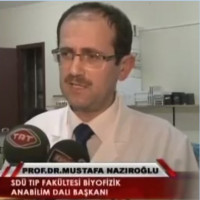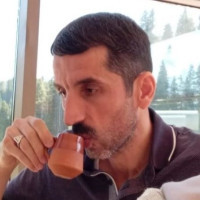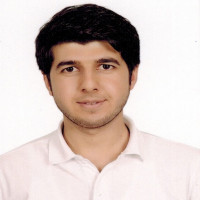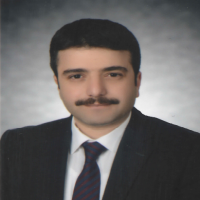Dergi Kurulları
Editor in Chief

 Türkiye
Web
Türkiye
Web
Professor Mustafa Nazıroğlu has graduated from Veterinary Faculty, Fırat University at 1991 and he received his PhD (Physiology) in Fırat University during the period of 1992-1996. He obtained second PhD at 2018 on Neuroscience in Suleyman Demirel University (SDU). Currently, he is working as Head of Department of Biophysics and Neuroscience in SDU, Medical Faculty. He has successfully completed his administrative responsibilities as Head of departments, Head of Congress organization committee, director of Neuroscience Research Centre (NOROBAM) in SDU. As chair of congress, he organized 1st, 2nd, 3rd, 4th, 5th, 6th, 7th and 8th biennale International World Congress of Oxidative Stress, Calcium Signalling and TRP Channels between 2006 and 2020, Isparta, Turkey. (https://2023.cmos.org.tr/). He also organized also 1st (2015), 2nd (2017), 3rd (2018), 4th (2019), 5th (2020), 6th (2021), 7th (2022), 8th (2023), and 9th (2024) (http://2024.brs.org.tr/). International Brain Research school. He served in organization committee of TEMA-14 Congress (2011), Hubei, Chine. Professor Nazıroğlu is serving as an editorial member of several reputed journals like ‘Biological Trace Element Research’, ‘Journal of Cellular Neuroscience and Oxidative Stress’, ‘Scientific Report (Nature publishing)’, ‘Frontiers in Physiology’ and ‘Current Neuropharmacology (Guest Editor)’. He is also reviewing editor in Frontiers in Membrane Physiology and Biophysics. He has been a lead speaker at drug discovery, apoptosis, calcium signaling and ion (TRP) channels conferences and other prestigious events worldwide and is a member of several expert advisory panels. He authored 274 international research and 19 review articles and 11504 citations in SCI-Thompson/Scopus and 6 international book chapters (Scopus H factor is 58). He was member of Turkish Physiological Society and Japanese Neuroscience Society. He has honored as NATO Research Fellowship, Martin-Luther University, Halle-Saale, Germany, (1999-2000), ‘Young Investigative Scientist Award (2001), UC-Berkeley, USA, Alexander von Humboldt (AvH) Research fellowship owner (June 2003-September 2005), Medical Faculty, RWTH-Aachen, Germany, Encouragement Award of Scientific and Tech. Res. Council (TUBITAK), Ankara, Turkey (2006), Howard Hudges Medical Institute (USA) support (2009), Khwarizmi International Award-IROST-Iran (2012), Visiting Professor in Leicester University, Leicester-UK (June-September 2010), Visiting Professor in Weil Cornell Medical College in Doha-Qatar (June-September 2013), Scientific Research Award of Turkish Neurosurgery Society (2016), and Travel Award of Japan Neuroscience Society (July, Tokyo-2017), Visiting Professor in NIPS, Okazaki, Japan (July-October, 2017).
Managing Editors

 Türkiye
Türkiye
Neuronal Membranes, Calcium Signaling and TRP Channels
Dr. Jose Antonio Pariente graduated in Biological Sciences since 1985 by the University of
Extremadura. Four year later obtained his Ph.D. from the same university, where he carried
out studies on the involvement of histamine in the regulation of exocrine pancreatic secretion.
In 1990 he moved to the University of Central Lancashire in the UK to carry out studies of
stimulus response coupling in pancreatic tissue. Since 1992 is Senior Lecturer and 2008 is
Professor of Physiology at the University of Extremadura and is currently also Head of the
Department of Physiology at the same university.
His research line has focused mainly on calcium ion homeostasis and the effect of reactive
oxygen species both on the release and the entry of calcium from the extracellular environment.
Currently his main research is focused on the relationship between the calcium signal, reactive
oxygen species and apoptosis, as well as to analyze the dual effect that melatonin has on
apoptosis induced by intracellular calcium overload and reactive oxygen species in both tumor
and non tumor cells. These studies have allowed him to publish over 150 articles in scientific
journals and participate in numerous conferences. He has developed more than 20 research
projects and it has been cited in more than 4,500 citations and has an H factor of 40 and 5
years of research awarded (sexenios). He is a member of the Spanish Society of Physiology
Sciences, the European Pancreatic Club and The Physiological Society.
Neuroscience and Cell Signaling

Antioxidant and Neuronal Disease

 Türkiye
Türkiye
Antioxidant Nutrition, Melatonin and Neuroscience
 Türkiye
Türkiye
